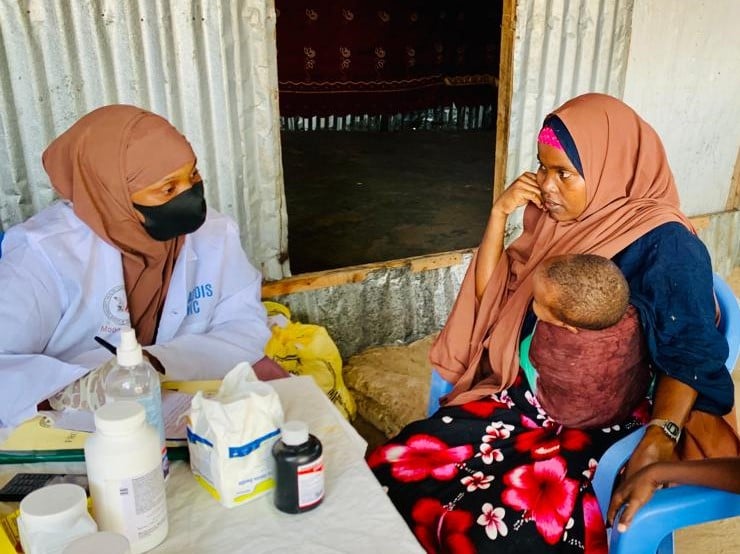
Language barriers in polio vaccine campaigns in Somalia
In this collaborative report, CLEAR GLOBAL, HISA, JVDC, MCAN and Minority Rights Group International explore the comprehension of polio vaccination messages among Internally Displaced Persons (IDPs) in Mogadishu, Banadir District, southeastern Somalia, who speak only or primarily Maay. Repeated cycles of conflict, famine and floods have seen many households move within Somalia. Thus, the need for inclusive health provision within IDP camps is of vital importance. The report is based on interviews conducted with 24 Maay speakers in three IDP camp locations using various tools, including qualitative approaches such as comprehension testing. The results show that those who speak only or primarily Maay do not fully understand most of the health messages on polio and polio vaccination presented within current vaccination campaigns, which use another dialect or language spoken in Somalia (Mahaatiri). Visual aids and images accompanied by Mahaatri text, which health workers use to explain polio to Maay speakers, are poorly understood. These findings show that for those who speak only Maay, the language of communication is a barrier, meaning that some do not sign up for vaccination outreach programmes and that this contributes to the frustration of considerable efforts to reach 100 per cent vaccination rates to eradicate polio in the area.
Levels of trust in polio eradication campaigns within the IDP camps are low, these research findings show, not least because of a lack of representation of ethnicity within current visual aids and given the absence of culturally and linguistically sensitive translation of polio eradication campaigns to Maay speaking populations.
This report will be a vital resource to health workers, human rights activists, polio experts, researchers and United Nations health campaigns seeking to understand the need for intercultural health policies in Somalia and the need to prioritise the demands of displaced minority groups. Access to health is being undermined due to assumptions made or beliefs held about the ability of Maay and Mahaatiri speakers to understand both languages, which affects how information is disseminated and has detrimental impacts on vaccination rates.
This report also concludes that unless health campaigns aimed at eradicating polio in Somalia address linguistic, ethnic and cultural specificity, issues of marginalization of minority groups are prioritised within polio campaigns at the level of recruitment of and training for workers and appropriate design of literature and visual aids, goals to reach 100 per cent rate of vaccination among local populations in Banadir District will remain challenging.
This content was published in the context of the programme ‘Improving polio coverage through minority IDP inclusion in Somalia’ (2022-2023) funded by a grant from the Bill & Melinda Gates Foundation. Learn more >

